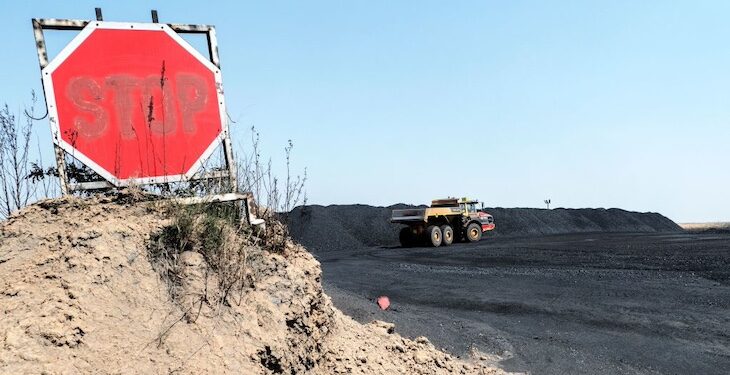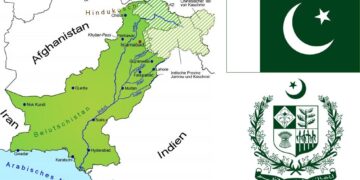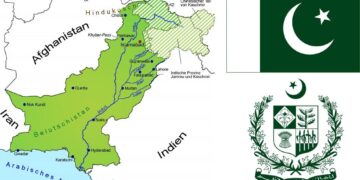In the remote Ludewa district of southern Tanzania, villagers scratch out a meagre living in harsh conditions. The roads are barely passable, clean water is hard to come by, and families live in rudimentary homes made from mud bricks. Preventable diseases like malaria, cholera, and dysentery plague the region, and health infrastructure is almost non-existent. Electricity, for most of Ludewa’s residents, is a distant dream. Yet beneath this harsh land lies enough coal to power all of Tanzania for over a century and to lift it out of poverty altogether.
While China is ready to develop Mchuchuma, the West has left the field, wary of the environmental fallout
The region’s coal reserve at Mchuchuma has been estimated to contain as much as 428 million tons. In conjunction with the neighbouring Liganga iron ore mine, it could fuel Tanzania’s energy grid, reduce reliance on costly imports, and spark the industrialisation of the country. The coal could power a 600 MW thermal plant, part of a larger project to generate electricity not only for industry but for homes across Tanzania. But despite the huge potential, the project remains stalled. After western firms were unable to secure financing for the project, a Chinese firm signed a $3 billion deal to develop the coal reserve. For the past several years, the project has been facing bureaucratic delays and regulatory gridlock, leaving the residents of Ludewa to struggle without the benefits of the coal beneath them.
While China is ready to develop Mchuchuma, the West has left the field, wary of the environmental fallout. Western investment, fearful of political backlash, has pulled out of fossil fuel projects across Africa – even as the continent’s need for energy grows more urgent.
There’s a cruel irony here: while China steps in to develop Africa’s resources, western environmentalists tut disapprovingly from afar. The West is all too happy to mine Africa for critical minerals like cobalt, nickel, and lithium – vital components of the electric cars and solar panels that will power Europe’s green future. But when it comes to Africa using its own coal to lift itself out of poverty, that’s a step too far.
The hard truth is that fossil fuels have powered every major industrial revolution, and it’s arrogance for the West to expect Africa to skip this phase of development. China didn’t miss the fossil fuel stage –look where it is now, after 40 years of unprecedented growth. The country powered its rise with coal, oil, and gas, building a thriving industrial base while the West now expects Africa to industrialise without the same tools.
But here we are. The green agenda, while aimed at saving the planet, is driving Africa into a corner. The western retreat from fossil fuels leaves projects like Mchuchuma in limbo, putting Africa at the mercy of Chinese capital.
Western environmental policies have created a global financial system that shuns coal, no matter how badly countries like Tanzania need it. This limits Tanzania’s options, forcing it into its dependency on China, which doesn’t hesitate to invest where the West retreats.
It’s not just the big projects like Mchuchuma being held back – African farmers are also bearing the brunt of western environmental policies, which are making it harder for them to access reliable energy and sustain their livelihoods. In neighbouring Kenya, Jusper Machogu, an activist sharply critical of global warming and half-baked environmental policies, has spent years warning that western climate policies are crippling African agriculture. Farmers in rural Kenya rely on diesel-powered pumps to irrigate their crops, but they’re being pushed to switch to solar panels – which, according to Machogu, can’t reliably power a farm. Machogu’s message is simple: Africa can’t run on energy solutions designed for nations that have already industrialised. What Africa needs is affordable diesel, not impractical green policies.
Without reliable access to fossil fuels, African farmers are being held back by western environmentalists more concerned with carbon footprints than with the development that Africa needs. Machogu’s point is that the policies that come out of Brussels, London, and Washington may win applause in conference halls, but they leave African farmers stuck in a cycle of low productivity and poverty.
Back in Ludewa, the consequences of these delays are all too clear. The people living in this district continue to suffer from high rates of disease, malnutrition, and lack of infrastructure. The Mchuchuma coal project, if completed, would spark the transformation of the country. Thousands of jobs would be created in both mining and steel production. Roads, schools, and hospitals would be built, funded by the taxes and profits from the project. Electricity would flow to homes that have never had it, and Ludewa could become a hub for Tanzanian industry.
But without coal, all the green energy projects in the world won’t lift East Africa out of poverty. Solar panels and wind farms might power a village, but they won’t drive the industrialisation that Tanzania needs. Africa requires baseload power – the kind that keeps factories running and infrastructure growing. Fossil fuels, like coal and natural gas, provide that reliable energy.
Tanzania’s development, and that of much of Africa, is being held back by a global narrative that places more value on green credentials than on human development. The West, having used fossil fuels to develop its own economy, is now attempting to maintain its growth with expensive renewables – an effort that Africa simply cannot replicate if it wants to industrialise. Yet, the West pressures Africa to rely solely on renewables, ignoring the reality that these cannot provide the reliable, affordable energy the continent needs.
The Mchuchuma project stands as a symbol of Africa’s potential – a project that could industrialise Tanzania and provide electricity to millions. But it also stands as a reminder of how western environmentalism is holding Africa back.
The West needs a reality check. Western climate policies are stymying growth in Africa, but they can’t hold back Africa’s ambitions forever. Nations such as China are stepping in. The Mchuchuma project shows that development will happen – with or without western involvement. If the West wants to stay relevant in Africa’s future, it must support real growth – or accept that others will take the lead.















